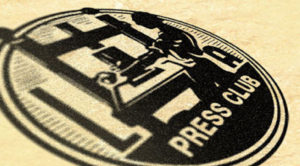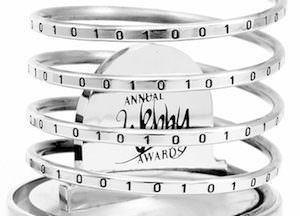Sounding Off on Bush’s Spy Program
An intense debate has been raging on Op-Ed pages and in the blogosphere over the legality of President Bush's warrantless domestic surveillance program. What follows is a roundup of some of the most influential, talked-about and linked-to analyses.Ever since the New York Times first disclosed on Dec. 16 that President Bush had authorized a warrantless domestic spying program in the wake of 9/11, the blogosphere and the Op-Edosphere have been awash in legal analyses of the program. This roundup contains some of the most linked- and responded-to analyses on the ‘Net, and serves as a good jumping-off point for the debate. (The professional affiliations of the authors are self-provided or come from their own websites.)
Following the list are links to primary documents and other source materials relevant to the issue.
Analyses
- David Cole
- Tom Daschle,
- Dale Franks
- Glenn Greenwald
- Orin Kerr,
- Martin Lederman, Attorney Advisor in the Department of Justice’s Office of Legal Counsel from 1994 to 2002; visiting Professor of law, Georgetown University
- Richard Posner
- David Rivkin and Lee Casey
- James S. Robbins,
- John Schmidt,
- Daniel Solove
- Geoffrey Stone
- Cass Sunstein
- Robert Turner
- Bruce Schneier
- Media Matters’ Top Ten Media Myths and Falsehoods on the Spy Scandal
- The U.S. Department of Justice’s response to several senators who questioned the program (.pdf file)
- Transcript of the first-ever hearing of the U.S. Foreign Intelligence Surveillance Court of Review (2002)
- U.S. Foreign Intellience Surveillance Court of Review’s only ruling (loosened the rules for obtaining evidence in cases of spying or terrorism) (2002)
- Foreign Intelligence Surveillance Act (FISA) (1978)
- Authorization for Use of Military Force (Sept. 14, 2001)
- Press Briefing by Attorney General Alberto Gonzales and General Michael Hayden, principal deputy director for National Intelligence (Dec. 19, 2005)
- United States v. United States District Court, 407 U.S. 297 (1972) (aka the Keith case–Fourth Amendment analysis of national security surveillance)
- Hamdi v. Rumsfeld, 124 S. Ct. 981 (analysis of the scope of authority granted by Congress’ Authorization to Use Military Force) (2004)
, law professor at Georgetown University; author of “Enemy Aliens: Double Standards and Constitutional Freedoms in the War on Terrorism”
Bush acted, in other words, as if there are no checks and balances in the American system of government. Some things changed drastically after 9/11, but we cannot allow that to be one of them. (Salon)
former Democratic senator from South Dakota and Senate majority leader in 2001-02; distinguished senior fellow at the Center for American Progress
If the stories in the media over the past week are accurate, the president has exercised authority that I do not believe is granted to him in the Constitution, and that I know is not granted to him in the law that I helped negotiate with his counsel and that Congress approved in the days after Sept. 11. (Op-ed in the Washington Post)
, publisher and editor of the monthly political journal, The New Libertarian
In the end, whether this will be ruled a violation of FISA will depend very much, I think, on how much deference the Court is willing to extend to the president as Commander in Chief during wartime. In any event, it certainly isn’t an open and shut case, no matter what position you take. (QandO)
, retired litigator who spent the past 10 years specializing in First Amendment challenges, including some of the highest-profile free speech cases of recent years.
The issue is not whether the President has this authority to eavesdrop without a warrant but whether it is legal for him to do so in the face of a Congressional law which makes it a crime to engage in such conduct. And none of the authorities they cite conclude that the President has such a royal power. Not one. (Unclaimed Territory)
associate professor of Law at George Washington University Law School, prolific scholar in the area of criminal law, criminal procedure and computer crime law
I think the legality of the NSA surveillance program is a very difficult question, and it depends on details we mostly don’t yet know. (The Volkh Conspiracy)
Such a sweeping claim of presidential power to ignore all statutes regulating his behavior in wartime is radical and profoundly troubling — and, as far as I know, virtually unprecedented. (Balkinization)
, judge on the U.S. Court of Appeals for the 7th Circuit; senior lecturer in law at the University of Chicago
The Foreign Intelligence Surveillance Act makes it difficult to conduct surveillance of U.S. citizens and lawful permanent residents unless they are suspected of being involved in terrorist or other hostile activities. That is too restrictive. (Op-ed in the Washington Post)
, lawyers who served in the Justice Department in the Reagan and George H. W. Bush administrations
The president has the constitutional authority to acquire foreign intelligence without a warrant or any other type of judicial blessing. The courts have acknowledged this authority, and numerous administrations, both Republican and Democrat, have espoused the same view. ( joint Op-Ed in the New York Times)
senior fellow in national-security affairs at the American Foreign Policy Council; a trustee for the Leaders for Liberty Foundation
I also have no doubt that these and similar actions can be legal, even when conducted without warrants. (National Review Online)
served under President Clinton from 1994 to 1997 as the associate attorney general of the United States; partner in the Chicago-based law firm of Mayer, Brown, Rowe & Maw
I do not believe the Constitution allows Congress to take away from the president the inherent authority to act in response to a foreign attack. (Op-Ed in the Chicago Tribune)
, associate professor of law at the George Washington University Law School
Bush’s surveillance was in violation of FISA. FISA requires the government to first obtain a court order from the Foreign Intelligence Surveillance Court before engaging in the surveillance. Bush didn’t do this. (Concurring Opinions)
, Distinguished Service Professor of Law at the University of Chicago Law School; author of multiple award-winning “Perilous Times: Free Speech in Wartime from the Sedition Act of 1798 to the War on Terrorism”
Mr. Bush has the audacity to assert that his authorization of NSA surveillance of American citizens on American soil is “lawful.” It is not. (U. Chicago Law School Faculty Blog)
, Karl N. Llewellyn Distinguished Service Proffessor of Jurisprudence, University of Chicago Law School; worked as an attorney-advisor in the Office of the Legal Counsel of the DOJ
If the President’s wiretapping has been limited to those reasonably believed to be associated with Al Qaeda and its affiliates — as indeed he has said — then the Attorney General’s argument is entirely plausible. (U. Chicago Law School Faculty Blog)
, served as counsel to the President’s Intelligence Oversight Board, 1982-84; co-founder of the Center for National Security Law at the University of Virginia School of Law
The president is right to continue monitoring the communications of our nation’s declared enemies, even when they elect to communicate with people within our country. (Wall Street Journal“>Op-Ed in the Wall Street Journal)
Update #1:
, internationally renowned security technologist and author; his first bestseller, “Applied Cryptography,” was described by Wired as “the book the National Security Agency wanted never to be published.”
This issue is not about terrorism. It’s not about intelligence gathering. It’s about the executive branch of the United States ignoring a law, passed by the legislative branch and signed by President Jimmy Carter: a law that directs the judicial branch to monitor eavesdropping on Americans in national security investigations. It’s not the spying, it’s the illegality. (Schneier on Security)
Other Resources
Primary Sources
(Hat Tip for the following five links: Concurring Opinions)
Independent journalism is under threat and overshadowed by heavily funded mainstream media.
You can help level the playing field. Become a member.
Your tax-deductible contribution keeps us digging beneath the headlines to give you thought-provoking, investigative reporting and analysis that unearths what's really happening- without compromise.
Give today to support our courageous, independent journalists.






You need to be a supporter to comment.
There are currently no responses to this article.
Be the first to respond.